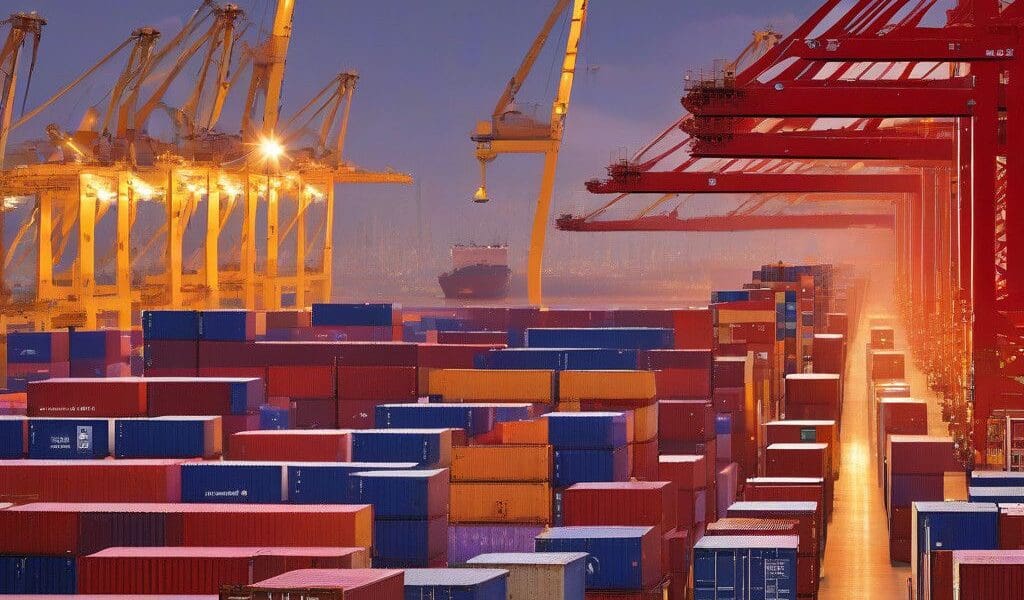Brazil Imposes New Tariffs on Chinese Imports: Analyzing the Economic Implications
Brazil has recently implemented new tariffs on a range of imports from China, marking a significant shift in its trade policy. This decision comes in the context of heightened concerns over the impact of increased Chinese imports on domestic production. The tariffs include a substantial 35% on fibre optic cables and a 25% increase on iron and steel products. According to the Foreign Trade Chamber Executive Committee (Gecex), these measures are justified by the ‘significant increase in imports that harmed national production.’
These tariffs are set to remain in effect for approximately six months, during which the Ministry of Foreign Trade will investigate claims of irregular trade practices tied to these imports. The scope of the tariff list is extensive, covering not only fibre optic cables but also sodium chlorite, metal foils, nebulisers, tarpaulins, PVC laminates, and sewing threads, with the majority of affected products originating from China.
The timing of this announcement is particularly striking as it coincides with Chinese President Xi Jinping’s upcoming visit to Brazil. Xi is expected to sign new trade agreements as Brazil increasingly aligns itself with China’s Belt and Road Initiative. This situation raises questions regarding the implications of such tariffs on the diplomatic relationships between Brazil and China.
Moreover, Brazilian authorities have been scrutinizing possible dumping and irregular subsidies associated with fibre optic cables and related products from China. However, it’s important to note that the newly imposed tariffs are independent of the ongoing investigations into these trade practices.
Despite the significant nature of this policy change, analysts suggest that a strong response from China is unlikely. This perspective arises from a recognition of the complex interplay between economic strategies and diplomatic relations. While the tariffs may initially strain economic ties, China’s broader economic interests in Brazil, particularly within the framework of the Belt and Road Initiative, could temper any aggressive retaliatory measures.
The economic context further illustrates the intricacies involved. Brazil’s action is seen as both a defensive maneuver to protect its domestic industries and a signal of its growing independence in shaping its economic policies. By imposing these tariffs, Brazil aims not only to safeguard local production but also to assert itself in the face of increasing competition from Chinese goods.
Historically, Brazil has maintained a delicate balancing act in its trade relationships, especially with economic powerhouses like China. In recent years, the Brazilian economy has become increasingly dependent on Chinese imports, leading to tensions between the need for growth through foreign goods and the desire to protect domestic markets.
This balance becomes even more critical when considering Brazil’s current economic outlook. The country is grappling with several economic challenges, including inflation and sluggish growth rates. In this environment, the imposition of tariffs might be viewed as a pragmatic response to promote local manufacturing and job creation.
In practical terms, businesses in Brazil, particularly those involved in sectors impacted by these tariffs, may need to adjust their strategies accordingly. Companies reliant on imports from China may face increased costs, which could, in turn, affect pricing for consumers. Conversely, local manufacturers might see an opportunity to expand their market share in the wake of these tariffs, provided they can meet demand and maintain competitive pricing.
Ultimately, the effectiveness of these tariffs in achieving their intended economic outcomes will depend on various factors. The ongoing investigation by the Ministry of Foreign Trade will play a crucial role in shaping future policies and potentially refining the tariff structure itself. As the situation evolves, stakeholders across the spectrum— from importers and manufacturers to policymakers— will be closely monitoring the ramifications of these measures.
In conclusion, Brazil’s decision to impose new tariffs on Chinese imports serves as a critical flashpoint in the ongoing discourse around trade policy, economic independence, and international relations. As Brazil navigates these challenges, the implications of its choices will resonate beyond its borders, affecting the interconnected global trade landscape.








